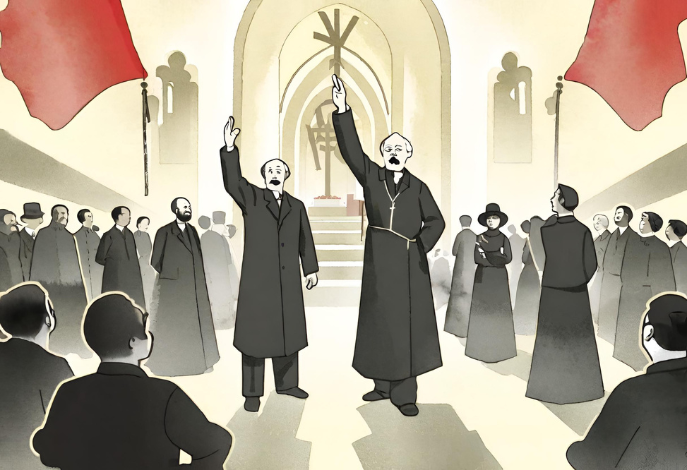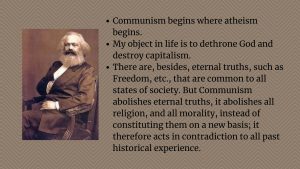Didn’t the early church practice socialism?

Social justice advocates in evangelical circles frequently will point to Acts 2:40–47 and 4:32–37 as evidence the early Christians practiced socialism. Acts 2:44–45 and 4:34–35 are main verses to which they point. Luke wrote,
2:44 Now all who believed were together, and had all things in common, 45 and sold their possessions and goods, and divided them among all, as anyone had need.…
4:34 Nor was there anyone among them who lacked; for all who were possessors of lands or houses sold them, and brought the proceeds of the things that were sold, 35 and laid them at the apostles’ feet; and they distributed to each as anyone had need.
Was this socialism?
Socialism is “an economic system based upon governmental or communal ownership of the means of production and distribution of goods and services.”1 While at first blush we might be tempted to think the actions of these early Christians fit this definition of socialism, a closer examination of both socialism and Luke’s historical account lead us to conclude otherwise.
First, the government was not involved. All of the contributions made to the church “resource room” where members “had all things in common” were voluntary contributions; they weren’t orchestrated or coerced.
Second, not only was government not involved, but also there apparently was no organized structure in the church mandating and maintaining “communal ownership of the means of production and distribution of goods and services.” Again, gifts were voluntary — spontaneously given and “divided…among all, as anyone had need.” We can put it yet another way: No central or advanced planning took place.
Third, Luke wrote, “All who were possessors of lands or houses soldthem, and brought the proceeds of the things that were sold, and laid them at the apostles’ feet” (emphases added). Church members could not give anything that did not belong to them in the first place, and they clearly did own property, for they were “possessors” who “sold” resources and had “proceeds” to show for their transactions. They could use these proceeds as they wished. Thus, private property and private property rights were realities in the early church, and property rights were honored. Under socialism, property is collectively owned, so property rights don’t exist. In just a bit, we will see additional evidence of property ownership and property rights in the early church.
Under socialism, property rights don’t exist.
Fourth, wealth generated from the sales of resources wasn’t brought to the government, but “laid…at the apostles’ feet.” This action is diametrically opposed to socialist tenets and ideals. Socialism and its sister ideology, communism, are deeply rooted in atheism. In these ideologies, the state is God — but in the early church in Acts 2 and 4, the one true God was revered, worshiped, and honored. Accordingly, donations were brought to church leaders, who used these resources to meet church members’ needs.
We need to realize that Karl Marx himself said,
-
-
- Communism begins where atheism begins.
- My object in life is to dethrone God and destroy capitalism.
- There are, besides, eternal truths, such as Freedom, etc., that are common to all states of society. But Communism abolishes eternal truths, it abolishes all religion, and all morality, instead of constituting them on a new basis; it therefore acts in contradiction to all past historical experience.
-

In this 45-second audio clip from His sermon “The Bankruptcy of Socialism,” the late Dr. D. James Kennedy, long-time pastor of Coral Ridge Presbyterian Church in Fort Lauderdale, Florida, explains.
Property Rights Explicitly Upheld
In Acts 5:1–11, Ananias and his wife Sapphira lied about a gift they had given to the church, and they paid for it with their lives. They sold a piece of land and “kept back part of the proceeds” but apparently claimed they were contributing the entire amount. Peter confronted Ananias about his deception with harsh words.
5:3Ananias, why has Satan filled your heart to lie to the Holy Spirit and keep back part of the price of the land for yourself? 4 While it remained, was it not your own? And after it was sold, was it not in your own control? Why have you conceived this thing in your heart? You have not lied to men but to God.”
Ananias dropped dead on the spot and was buried. “[A]bout about three hours later when his wife came in,” Peter questioned Sapphira, asking her if the amount she and her husband had given was the actual price of the land, as the couple previously had asserted. Sapphira indicated that it was, and Peter responded with righteous indignation. “How is it that you have agreed together to test the Spirit of the Lord?” he asked. “Look, the feet of those who have buried your husband are at the door, and they will carry you out.” She, too, died suddenly, and “the young men [who’d buried Ananias] came in and found her dead, and carrying her out, buried her by her husband.”
It’s important that we understand exactly what this couple did that cost them their lives. Their egregious sin wasn’t that they gave only a portion of the proceeds, but that they claimed they’d given the whole amount when they’d given only a portion. It was a lie — one that deeply offended God and that rocked the early church.
Note carefully, however, Peter’s words to Ananias, indented above. Peter explicitly affirmed that the couple had control over all they owned, as well as control over the proceeds that were theirs after the land was sold. Private ownership of resources and the rights to manage and use those resources as the owner(s) saw fit were operative principles in the early church — including during the period of time when the church experimented with having “all things in common.”
The Experiment that Didn’t Work
This brings us to a final point of which we should be aware. Although the early church didn’t practice socialism in the strictest sense, their experiment with having “all things in common” was enough like socialism to render the approach they took unworkable. The common store approach was not “ever repeated anywhere else.”2 Why? It simply didn’t work! In fact, it created all kinds of problems for the church and its leaders, including, some have noted, the tensions the arose among the church’s widows in Acts 6:1–7.
Copyright 2022. All rights reserved.
1Jeff Myers and David A. Noebel, Understanding the Times: A Survey of Competing Worldviews, (Manitou Springs, CO: Summit Ministries, 2016), 100.
2Dr. D. James Kennedy, in his sermon “The Bankruptcy of Socialism,” at approximately the 15:18 mark.




